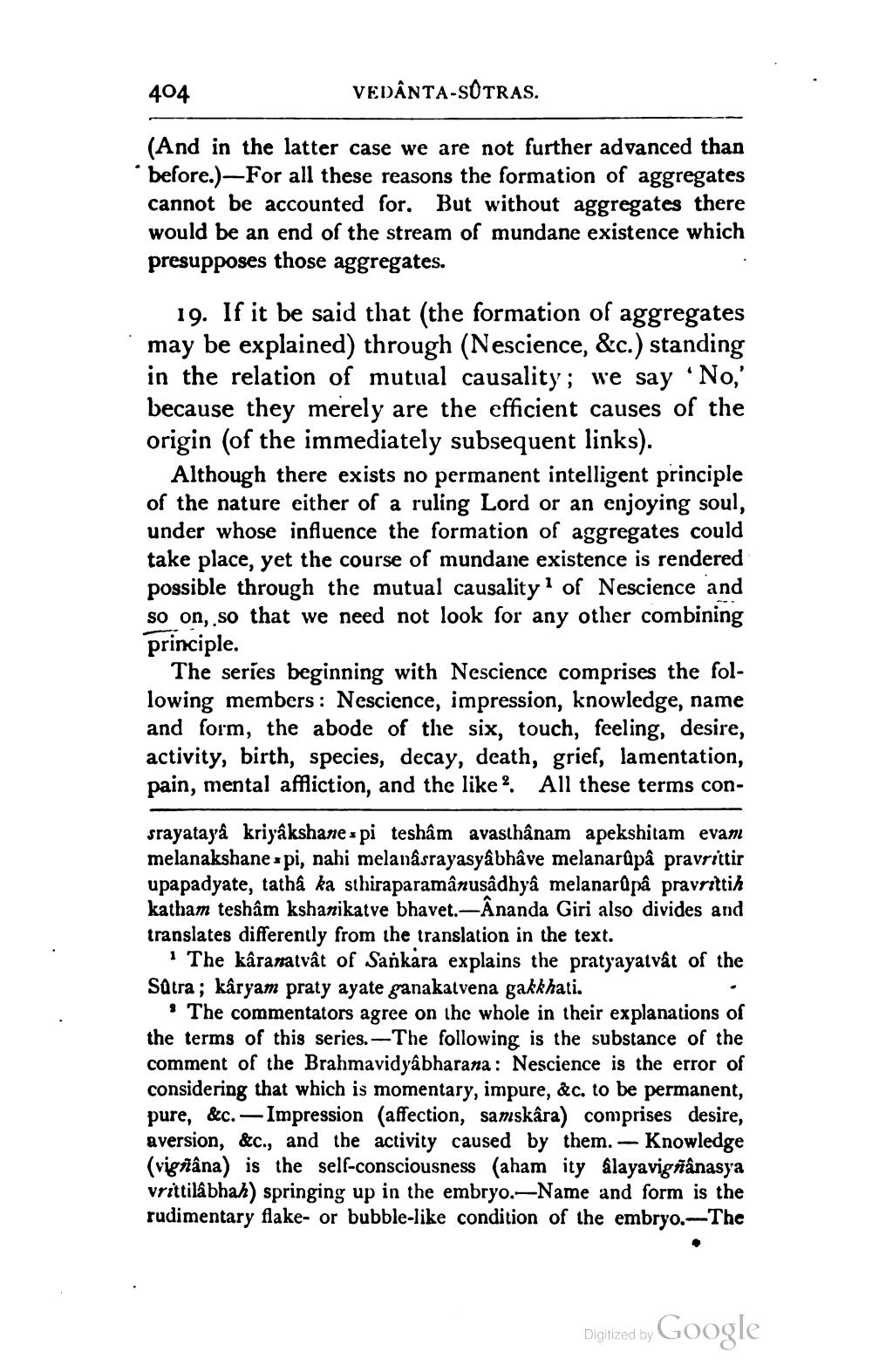________________
404
VEDANTA-SOTRAS.
(And in the latter case we are not further advanced than before.)-For all these reasons the formation of aggregates cannot be accounted for. But without aggregates there would be an end of the stream of mundane existence which presupposes those aggregates.
19. If it be said that the formation of aggregates may be explained) through (Nescience, &c.) standing in the relation of mutual causality; we say "No,' because they merely are the efficient causes of the origin (of the immediately subsequent links).
Although there exists no permanent intelligent principle of the nature either of a ruling Lord or an enjoying soul, under whose influence the formation of aggregates could take place, yet the course of mundane existence is rendered possible through the mutual causality of Nescience and so on, so that we need not look for any other combining principle.
The series beginning with Nescience comprises the following members: Nescience, impression, knowledge, name and form, the abode of the six, touch, feeling, desire, activity, birth, species, decay, death, grief, lamentation, pain, mental affliction, and the like?. All these terms con
srayataya kriyâkshane s pi teshâm avasthanam apekshitam evam melanakshane api, nahi melanâsrayasyâbhâve melanarüpa pravrittir upapadyate, tatha ka sthiraparamânusâdhyâ melanarůpå pravrittih katham teshâm kshanikatve bhavet.-Ananda Giri also divides and translates differently from the translation in the text.
1 The kâranatvât of Sankara explains the pratyayalvât of the Sätra; kâryam praty ayate ganakalvena gakkhati.
• The commentators agree on the whole in their explanations of the terms of this series. The following is the substance of the comment of the Brahmavidyabharana: Nescience is the error of considering that which is momentary, impure, &c. to be permanent, pure, &c. - Impression (affection, samskâra) comprises desire, aversion, &c., and the activity caused by them. — Knowledge (vigstâna) is the self-consciousness (aham ity alayavigñanasya vrittiläbhah) springing up in the embryo. Name and form is the rudimentary flake- or bubble-like condition of the embryo.--The
Digitized by
Digized by Google




